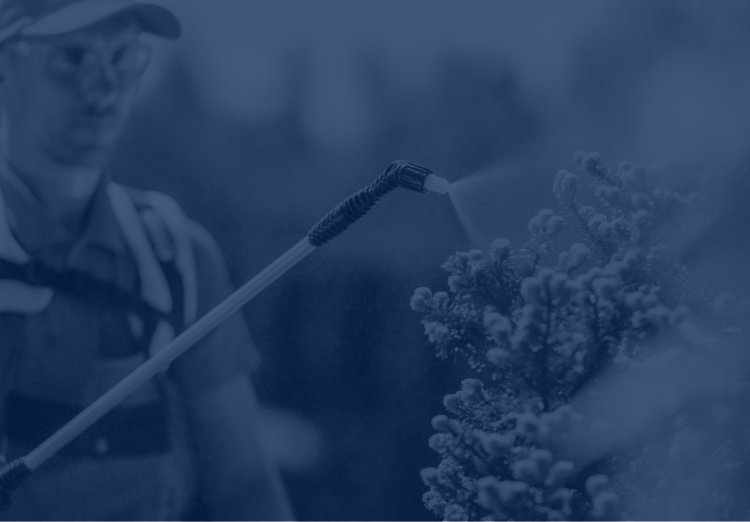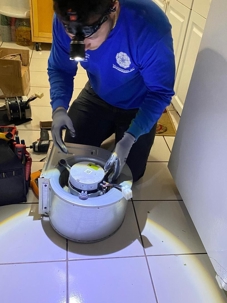Air quality and system efficiency are paramount for maintaining a comfortable and healthy indoor environment. Central to achieving these goals is the HVAC filter, an essential component in HVAC systems that can significantly influence air quality and the system’s overall performance.
Why HVAC Filters Matter
HVAC filters trap airborne pollutants such as dust, pollen, mould spores, pet dander, bacteria, and viruses. Preventing these particulates from circulating throughout your home is crucial in maintaining good indoor air quality.
In addition, clean filters can improve the efficiency of your HVAC system, ensuring it runs smoothly without unnecessary strain. When filters are clogged with debris, they reduce airflow, causing your unit to work harder and use more energy. A high-quality filter can help protect your HVAC system from damage, leading to longer-lasting performance.
Overview of HVAC Filter Costs
Understanding the costs associated with HVAC filters is essential for homeowners. On average, HVAC filter replacement cost can range from $10 to over $100, depending on the type, size, and quality of the filter chosen. Regular maintenance involving filter replacement is critical to comfort and a significant factor in energy efficiency, potentially saving you money in the long run.
Factors Influencing HVAC Filter Replacement Costs
Filter Type and Quality
Regarding HVAC filters, several types are available, each with distinct characteristics impacting cost and performance. Here’s a brief comparison of the most common materials:
- Fibreglass Filters: These are typically the most inexpensive options, usually costing between $3 and $10. They offer essential filtration but have a low Minimum Efficiency Reporting Value (MERV), making them less effective at capturing small particles.
- Pleated Filters: Pleated filters are more efficient than fibreglass and usually range from $10 to $20. They have a larger surface area and a higher MERV rating (typically between 8 and 13), which makes them better at filtering out allergens and other particulates.
- HEPA Filters: High-efficiency particulate Air filters can capture 99.97% of particles that are 0.3 microns or larger. These filters are ideal for homes with allergies or pets and typically cost between $20 and $100.
- Electrostatic Filters: These reusable filters balance quality and cost-effectiveness. They are often priced around $20 to $50. They use an electrostatic charge to capture particles and can last up to five years with proper maintenance.
How Quality Affects Longevity and Price
Higher-quality filters, such as HEPA or premium pleated options, are more expensive upfront. However, due to their superior construction and efficiency, they can last longer than cheaper filters. Investing in high-quality filters can also save energy bills and reduce maintenance costs for your HVAC system.
Frequency of Replacement
The lifecycle of an HVAC filter varies based on its type and usage.
- Fibreglass Filters: The recommended replacement interval is every 30 days, as they clog quickly.
- Pleated Filters: These can last up to 90 days, depending on usage and environmental factors.
- HEPA Filters: Typically require replacement every 6 to 12 months but can last longer in less polluted environments.
- Electrostatic Filters: While reusable, they should be cleaned every 1 to 3 months to maintain optimal airflow and efficiency.
The replacement frequency is also influenced by the environment, such as homes with pets or high-traffic areas, which may necessitate more frequent changes.
System Size and HVAC Type
Larger HVAC systems usually require larger or multiple filters, which can increase replacement costs. Additionally, the brand and model of your HVAC system can also affect compatibility with certain filter types – in particular, high MERV-rated filters may not be suitable for lower-end systems, leading to decreased performance and higher utility costs.
Location and Labor Costs
In regions with a higher cost of living, labour rates for professional HVAC filter replacements tend to be higher. Professionals generally charge anywhere from $75 to $200 for service calls and can cost upwards of $150 for filter replacements, depending on the complexity of the HVAC system. To save on costs, many homeowners opt for DIY replacements, which can be easy and manageable.
Types of HVAC Filters and Their Costs
Fiberglass Filters
Fibreglass filters are the cheapest option but have low filtration efficiency.
- Pros: Low initial cost.
- Cons: It requires frequent replacements and doesn’t capture smaller particles effectively.
- Cost Range: $3-$10.
Pleated Filters
Pleated filters offer superior filtration than fibreglass and have a larger surface area.
- Pros: Better air quality, can last longer.
- Cons: Higher upfront cost.
- Cost Range: $10-$20.
HEPA Filters
For those needing excellent filtration – especially allergy sufferers – HEPA filters are favoured.
- Pros: Captures most airborne particles and improves air quality.
- Cons: Higher cost and may require periodic replacement.
- Cost Range: $20-$100.
Electrostatic Filters
These reusable filters are environmentally friendly and efficient.
- Pros: Long lifespan, can be washed and reused.
- Cons: Higher upfront cost than disposable types.
- Cost Range: $20-$50.
How Often Should You Replace Your HVAC Filters?
General Guidelines Based on Filter Type
While specific recommendations vary, here’s a quick reference guide for popular filter types:
- Fiberglass: Every 30 days.
- Pleated: Every 90 days.
- HEPA: Every 6-12 months.
- Electrostatic: Clean every 1-3 months.
Signs You Need to Replace Your HVAC Filter Sooner
It’s crucial to monitor your filters closely. Common indicators that a filter needs replacement include:
- Visible dirt and debris: If your filter looks grimy, it’s time to change it.
- Increased utility bills: A spike may indicate your HVAC system is working harder due to a blocked filter.
- Decreased airflow: It might be time for a new filter if the air output weakens.
The Hidden Costs of Neglecting HVAC Filter Replacement
Increased Energy Consumption
A clogged filter can significantly increase energy costs. According to the U.S. Department of Energy, a dirty filter can increase energy consumption by as much as 15%. When your system is overworked, you’ll notice higher bills, diminishing the benefits of any short-term savings from skipping filter replacements.
Potential Damage to HVAC System
Neglecting regular filter changes can lead to deeper issues within your HVAC system. A clogged filter can cause critical components, like the blower motor and evaporator coils, to overheat and fail, resulting in costly repairs.
Reduced Air Quality
Dirty filters can exacerbate indoor air pollution, causing respiratory issues and compromising the health of residents, particularly those with allergies or asthma. Paying attention to filter maintenance can safeguard against these potential health risks.
DIY vs. Professional HVAC Filter Replacement
The Benefits of Replacing Filters Yourself
Changing your HVAC filter is a straightforward task that can save you money. Here’s how to do it:
- Determine the Filter Size: Check the size of your existing filter.
- Turn off the HVAC System: Always ensure the system is off before you begin work.
- Remove the Old Filter: Clean the worn filter carefully to avoid dust.
- Insert the New Filter: Make sure it’s oriented correctly, following the airflow direction indicated.
- Record the Date: It’s helpful to remember when you replaced it for future reference.
- Turn On Your HVAC System: Restart the system and check for any irregular noises or issues.
Doing it yourself ensures your system stays efficient without paying for labour costs.
When to Hire a Professional
While replacing filters can often be a DIY project, some situations are better suited for professional help. Hiring a pro might be wise if your HVAC system is complex or you are unaware of the filter type.
Professional costs can vary, but filter replacement generally costs $75 to $150, depending on the scope of work.
How to Choose the Best HVAC Filter for Your Home
Understanding MERV Ratings
Minimum Efficiency Reporting Values (MERV) rating indicates the effectiveness of air filters at capturing particles:
- MERV 1-4: Basic filtration, blocking heavy dust and fibres.
- MERV 5-8: Better at catching mold spores and smaller particles.
- MERV 9-12: Appropriate for homes with pets or allergies, capable of capturing dust and pet dander.
- MERV 13-16: Used in hospitals and similar settings, capturing smaller particles like bacteria and virus carriers.
Matching Filters to Your Household Needs
When choosing filters, consider the specific needs of your household:
- For Allergy Sufferers: Opt for pleated filters with MERV ratings of at least 11.
- For Pet Owners: Look for filters specifically designed to trap dander, such as HEPA filters.
- For Smokers: Filters rated MERV 13 or higher will be ideal for capturing smoke particles.
Balancing Cost and Efficiency
It is crucial to choose cost-effective filters that meet performance needs. Higher-efficiency filters can save money over time through reduced energy use but also ensure compatibility with your HVAC system to avoid airflow problems and inefficient operation.
HVAC Filter Replacement and Energy Efficiency
How Clean Filters Reduce Energy Bills
One of the primary benefits of regularly replacing your HVAC filters is the direct link to lower energy bills. A clean filter allows air to flow freely through your HVAC system, reducing the workload on the furnace or air conditioner, thus minimizing energy consumption.
Case Study: Energy Savings from Regular HVAC Maintenance
Consider a real-world example where consistent filter replacement led to energy savings. One family consistently changed their filters every three months and documented a 15% reduction in heating and cooling costs over the year. This case highlights the potential financial benefits tied to simple maintenance tasks.
How to Save Money on HVAC Filter Replacement
Purchasing Filters in Bulk
Buying filters in bulk can significantly reduce costs. Many retailers or online suppliers offer discounts on bulk purchases, which can help lower the overall expense of maintaining an HVAC system.
Subscription Services for Regular Filter Delivery
Consider a subscription service for HVAC filter delivery. Services like Momentum AC & Electric provide the convenience of filters shipped directly to your door without the hassle of remembering to purchase them. Many also offer discounts for subscribing.
Seasonal Discounts and Promotions
Look out for seasonal sales and promotions from local hardware stores or filter suppliers. You can find good filter deals during off-seasons, allowing for more significant savings.
Environmental Impact of HVAC Filters
Eco-Friendly HVAC Filter Options
If you’re concerned about sustainability, consider eco-friendly HVAC filters from recycled materials. Brands like Pure Green offer filters made from recycled products, which can help reduce waste while maintaining air quality.
Proper Disposal of Used Filters
When disposing of old HVAC filters, consider the environment. Many reusable filters can be cleaned and reused, but disposable filters should be placed in a sealed plastic bag before being thrown away to minimize the spread of dust and pollutants.
Frequently Asked Questions About HVAC Filter Replacement Costs
How much does it cost to replace an HVAC filter?
The cost can vary widely based on filter type, ranging from $3 for basic fibreglass filters to over $100 for high-quality HEPA filters.
Can I extend the life of my HVAC filter?
Regular maintenance and cleaning of reusable filters can extend their life, but replacing disposable filters at recommended intervals is essential for optimal performance.
Is it worth buying higher-priced filters for better air quality?
Investing in higher-priced filters, especially HEPA or high MERV-rated pleated filters, can significantly improve air quality and system efficiency, yielding long-term savings.
Should I hire a professional to replace my HVAC filter?
While it’s often a title task, hiring a professional can benefit complex systems, especially if you’re unsure you’re the appropriate filter type.
How often should I change my HVAC filter for optimal performance?
Depending on type and household conditions, filters should be replaced every 1 to 3 months.
Conclusion
By selecting the correct type of filter, monitoring usage, and paying attention to replacement needs, you can optimize your HVAC system’s performance while enjoying cleaner air and lower energy costs.

